Simple changes for big savings
Small behavioural changes can lead to significant savings on your bills.
Learn smart and easy energy habits which can lead to lower utility costs, reduce waste and contribute to a more sustainable future.
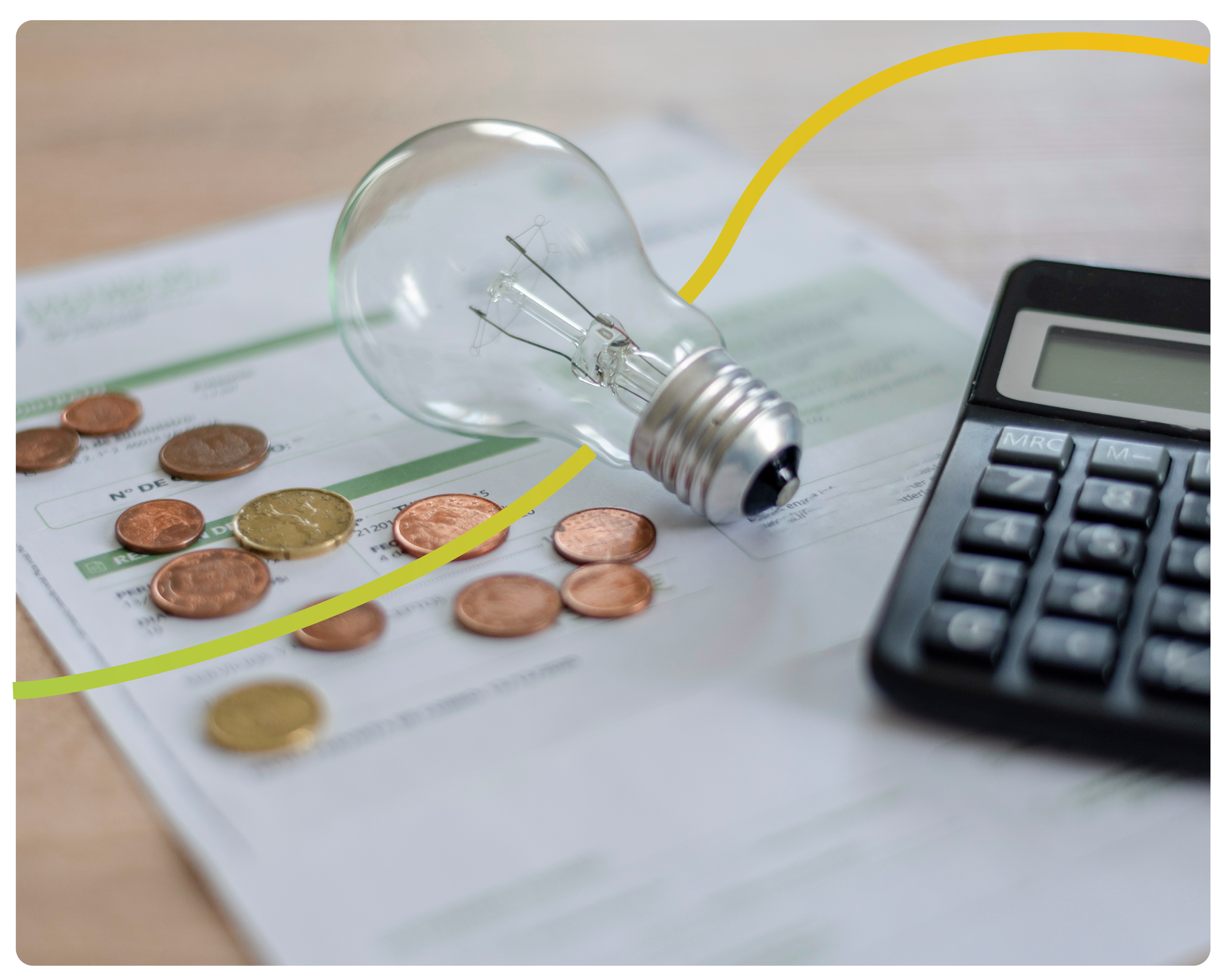
Tips to stay warm and save money
Heating your home accounts for 50 – 60% of your energy bill. You don’t have to spend lots of money to stay warm and here’s how:
- Lower the thermostat - you could save an average of £80 a year.
- Consider different ways of heating your home – there are cheaper alternatives to heating your home other than the default gas heater.
- Use heating controls efficiently – by heating rooms you are not in, you are wasting energy so therefore, increasing your electricity bill. Start only putting the heating on when it is needed.
- Insulate and draught-proof your home – you can save money by draught-proofing your home as this prevents heat loss, meaning you save on heating costs.
Reduce your water usage and save money
When you use hot water, you are using energy to heat it up and this can account for 15% of your household energy usage. By making these simple changes, you can make big savings:
- Take shorter showers – reducing your shower by 1 minute can save you an average of £75 a year on your water and energy bills.
- Use your hot water efficiently – using a washing up bowl instead of running the tap to clean your dishes could save you £25 a year.
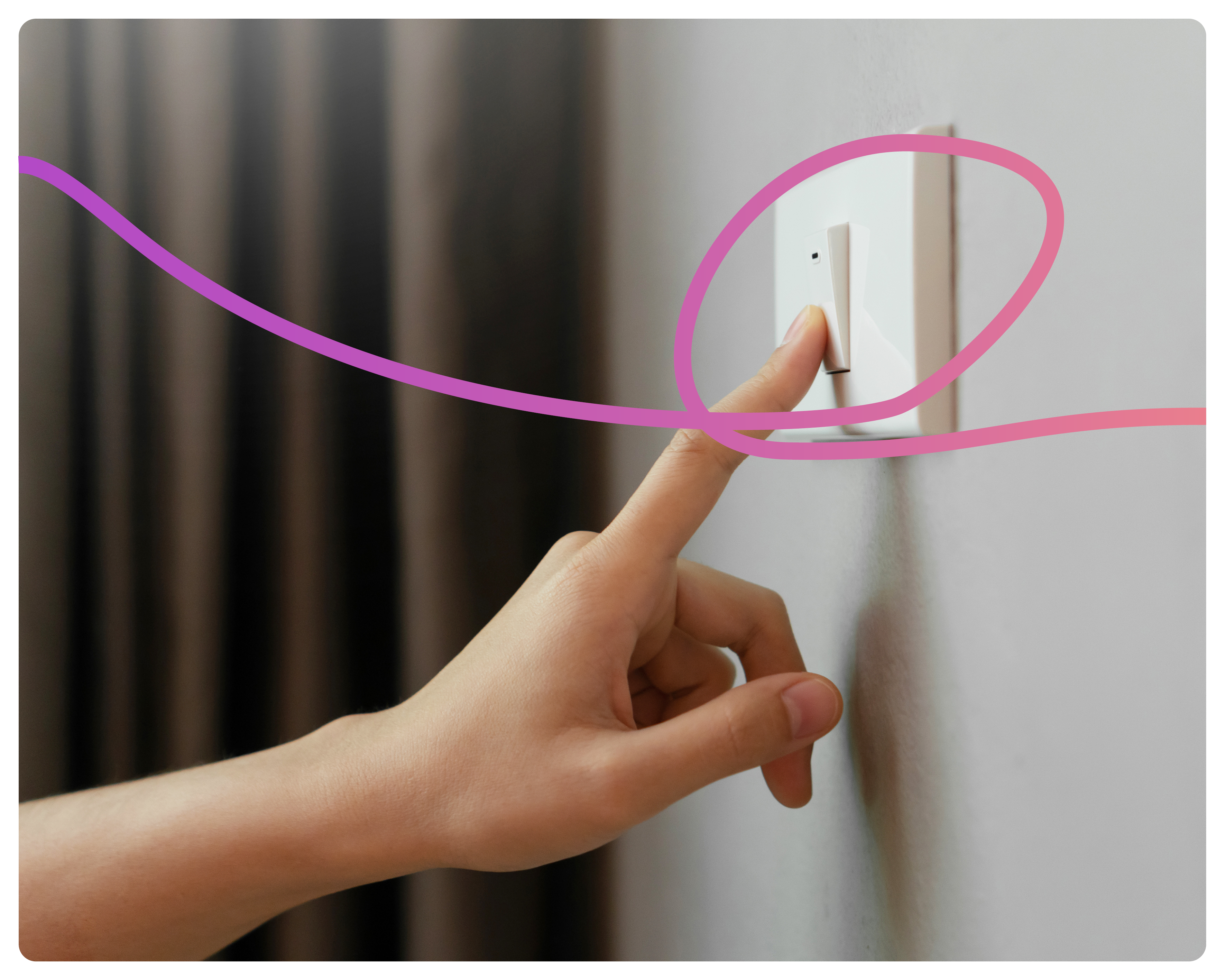
Reduce unnecessary energy use
Making these small adjustments can reduce costs and make your bill more affordable.
- Switch off your appliances – you can save yourself around £65 a year when you switch your appliances off from the wall rather than leave them on standby mode.
- Use energy-efficient lightbulbs – LED lightbulbs use 90% less energy than traditional lightbulbs and last much longer. Replacing these bulbs could save you £55 a year.
- Opt for energy-efficient appliances – appliances are rated from A (most efficient) to G (less efficient) so it is recommended you select the most energy-efficient models of appliances you can afford.
- Optimise your fridge and freezer performance – as these appliances run 24/7, fridges and freezers are considered the most energy-intensive appliances. It is recommended fridges are set to between 3-5°C and freezers at -18°C to maximise efficiency.
Cook smart to lower your bills
Choosing the most energy-efficient cooking methods could save you money on your energy bills. This is because cooking appliances use a significant amount of energy, so using a microwave or air fryer over an oven is much cheaper to run.
- Efficient use of appliances – It is important to use your appliances efficiently so opting to cook multiple items in an oven can reduce your overall cooking time and energy, saving you money.
- Boil only what you need – when boiling water, it is better to only boil the water you are likely to use so you do not waste energy.
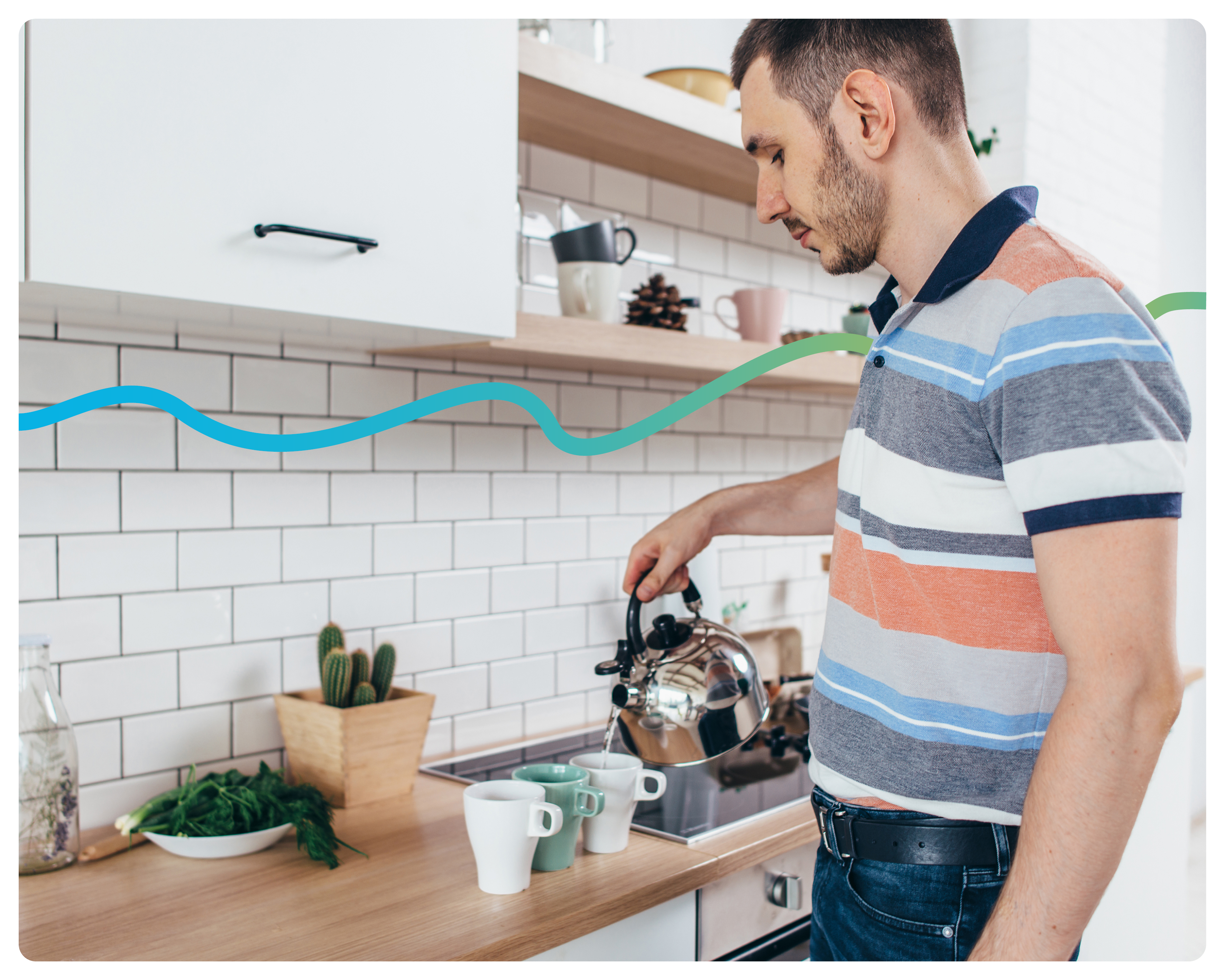
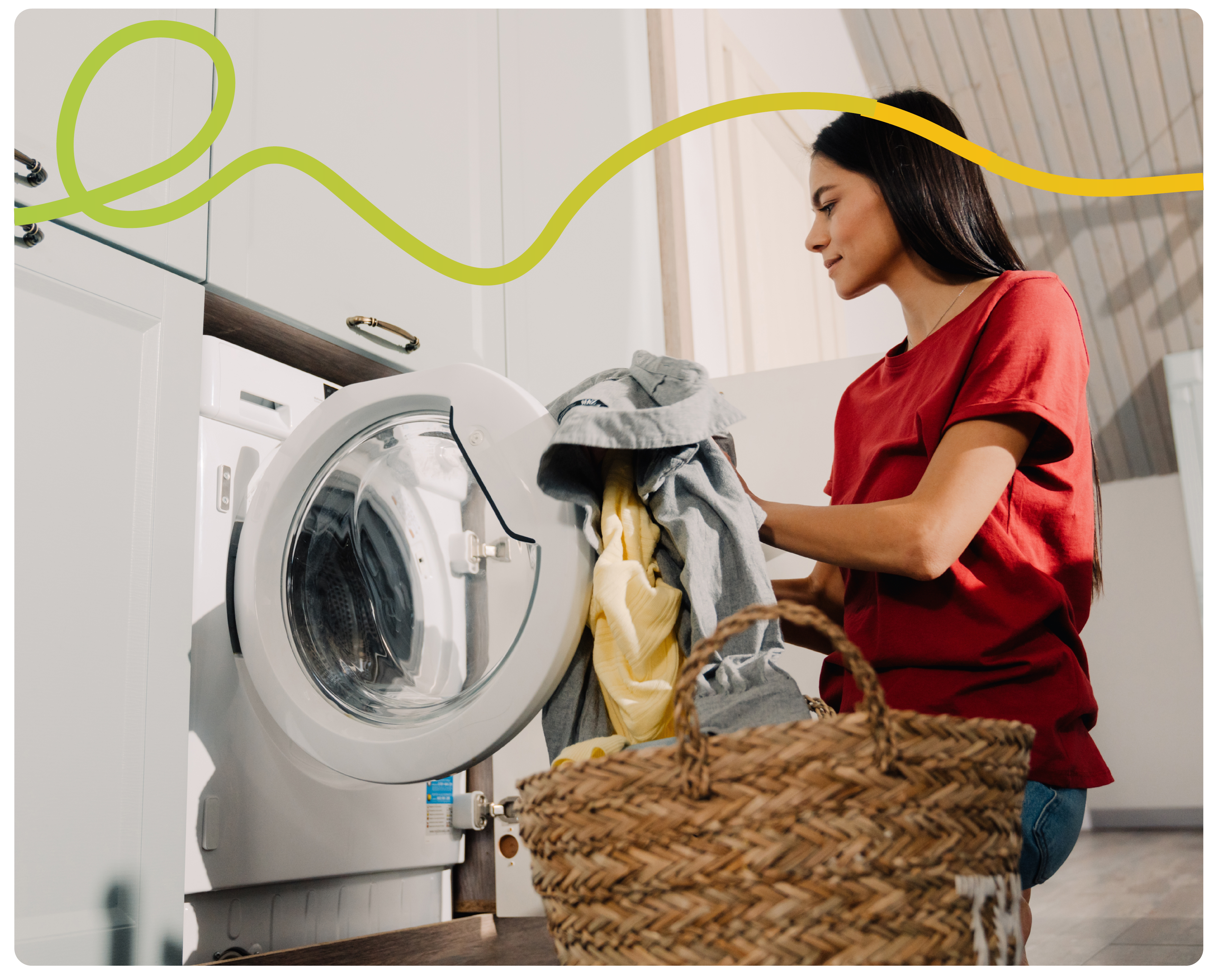
Wash smarter and save money when doing your laundry
Your laundry appliances account for over 15% of your electricity use.
You can reduce how much energy you use by making these changes:
- Lower the temperature to 30°C – When you wash your clothes at 30°C you can save up to 40% on your washing machine energy usage.
- Maximise each load – Running a full load will save you water and electricity. Just because you half the amount of washing, does not mean you are using half the energy.
- Avoid tumble dryers – Save up to £60 a year by choosing to air dry your clothes over turning on your tumble dryer.
Monitor and control your usage with a smart meter
Through a smart meter, you can:
- Track your energy usage – by seeing how much gas and/or electric you use, you can adjust your usage habits in real-time to save you money.
- Setting budget goals – by the in-home display providing you a display of what you are spending, you can set spending limits for your energy and receive alerts when approaching your budget limit.
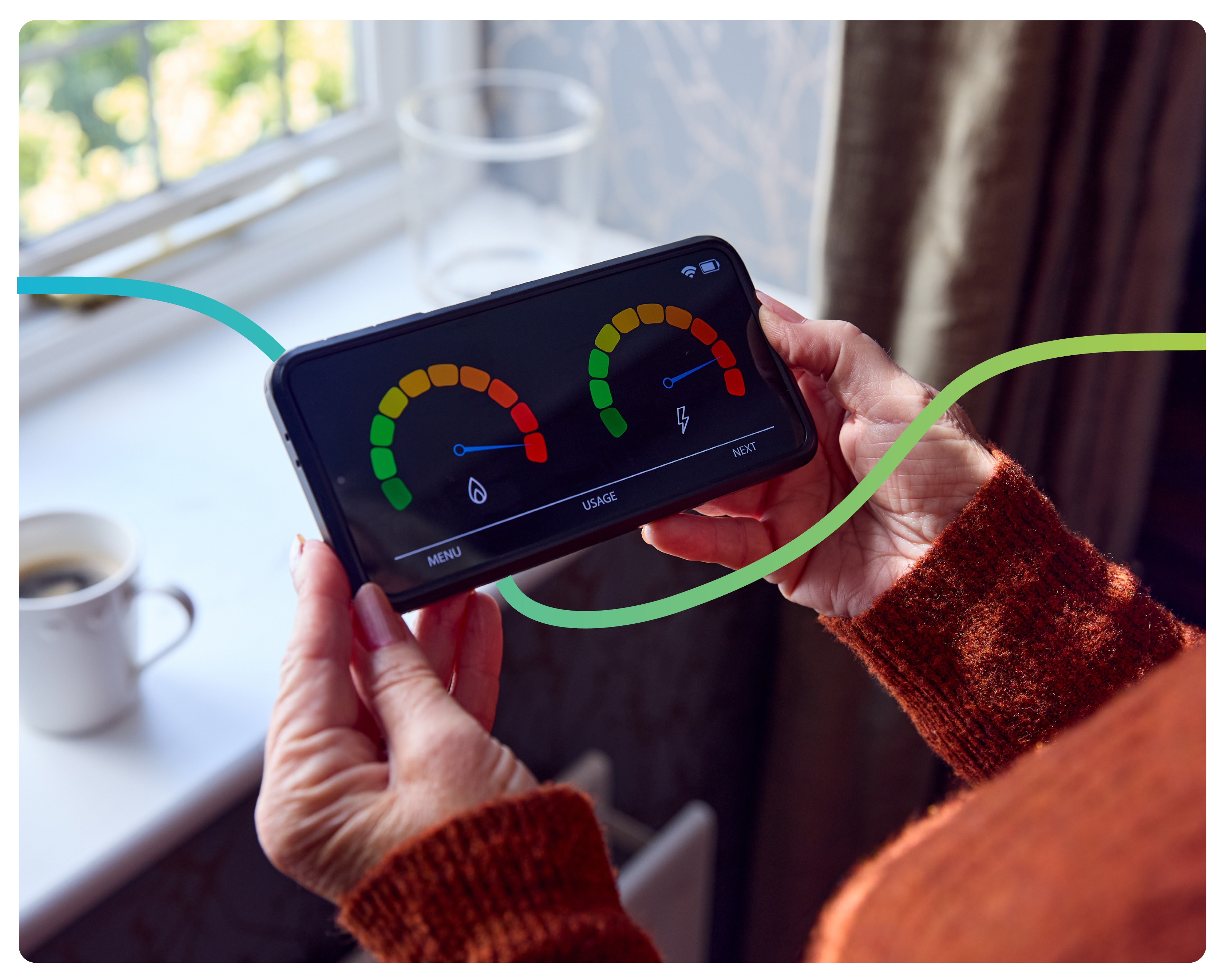

Small actions can make big savings
Small changes to your daily routine can make a big difference to your energy usage. These include:
- Turning off the lights when you leave a room.
- Only running the dishwasher and washing machines when you are doing a full load.
- Unplugging your chargers and devices when they are fully charged.
- Encouraging your family members to be mindful when it comes to using energy.
Small behavioural changes can make big savings on your energy bills.
Get in touch to see what you can do to start saving money and energy in your home.
This service is funded by our partner, UK Power Networks

Return to our Energy Advice home page

